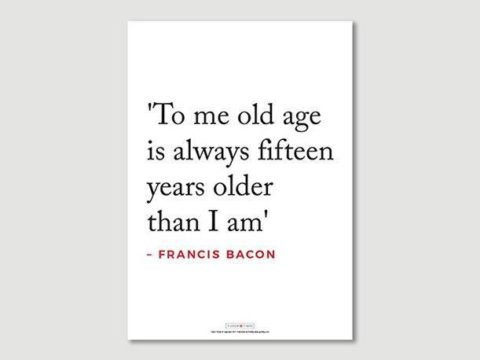John Knox: Life Story
Chapter 7 : Frankfurt
Knox left Dieppe in the spring of 1554 to travel to Geneva, where the French Huguenot, Jean Calvin, had instituted his theocratic model of society. Knox wanted advice on a set of questions that combined both law and religious duty. At the heart of his concern was whether it was right for ‘godly’ ie Protestant, subjects to rebel against ‘idolatrous’ ie Catholic, rulers. He was also concerned about whether the authority of female rulers (even supposing them to be lawful at all) transferred to their husbands, either automatically or by a conscious decision.
Calvin was not eager to be drawn into encouraging rebellion. He passed Knox on to the community at Lausanne, headed by Pierre Viret. Viret was one of the most charismatic of the Swiss Reformed preachers, who had studied in Paris, before returning to his home town of Orbe, where he converted many to the Reformed faith. But Viret was also hesitant about encouraging rebellion, and encouraged Knox to move on to Zurich, where Heinrich Bullinger led the Reformers.
Bullinger had been closely connected with the Edwardian regime, and had been a correspondent of Lady Jane Grey and her family. Bullinger was prepared to enter into discussion with Knox, and, so far as female sovereigns’ legitimacy and the role of their husbands was concerned, he referred Knox to the laws and customs of individual countries. Bullinger, like Calvin and Viret, was reluctant to suggest that rebellion was ever the right option.
Knox however, was not satisfied, and began to vent his frustrations in a series of tracts pointing out the iniquities of the ‘Nicodemites’ as those who hid their faith were called. Amongst the tracts that were designed to recall the English Protestants to their senses were: ‘An Epistle to his Afflicted Brethern in England’, ‘A Comfortable Epistle sent to the Afflicted Church of Christ’ and ‘A Faithfull Admonition made by John Knox unto the Professors of God’s Truth in England’.
In these tracts, he condemned the nobility of England who had turned their coats and compared Mary I with Jezebel, called her an ‘abominable idolater’ and accused her of treason against her people by the introduction of a Spanish husband. Some of the passages in ‘A Faithfull Admonition…’ could even be read as encouraging the assassination of Queen Mary.
Knox decided to return to Geneva, which he described as ‘the most perfect school of Christ’ after a brief sojourn in Dieppe to gather the latest news from England and Scotland. Settled in the Swiss city, he spent his time improving his knowledge of Greek and Hebrew, as well writing letters to Elizabeth Bowes, Anne Lock and other correspondents.
The English Protestants in exile congregated in several cities – mainly Strasbourg, Zurich and Frankfurt. In Frankfurt, the city authorities had granted permission to the exiles to set up a Stranger Church, following the Reformed doctrines of Calvin, Zwingli, Bullinger and the other Swiss Reformers, rather than the Lutheranism of the city. The Frankfurt congregation needed a preacher, and on 24 September 1554 they wrote to Knox, to invite him to join them.
‘have with one voice & consent chosen you particularly to be one of the ministers of our congregation here, to preache unto us the most lyvelye word of God according to the gyfte that God hath given you.’
Initially reluctant to leave Geneva, Knox was persuaded by Calvin to take up the call.
There was contention as to how the exiled congregations should conduct themselves. Should they implement the Book of Common Prayer of 1552, with no changes, other than what might be required to keep within the law of their host cities, or should more fundamental changes be made, to reflect the fact that the 1552 book had only been a staging post en route to a fully Reformed faith?
The various congregations did not just disagree with each other, but within each group. Within the congregation at Frankfurt, those in favour of maintaining the 1552 book were led by John Bale, who had been a colleague of Thomas Cromwell, until exiled, then Bishop of Ossory under Edward, before leaving England at Mary’s accession. Those who wanted further reform were led by William Whittington, who had arrived in Frankfurt on 27th July 1554. Whittington, although a layman, was a close friend and associate of Christopher Goodman, with whom Knox had left England.
The community in Strasbourg, which adhered to the Prayer Book, thought that Frankfurt should accept its authority as there were three bishops within its congregation. It sent a letter to Frankfurt in November, delivered by Edmund Grindal (formerly a fellow-chaplain with Knox at the court of Edward VI, and later Archbishop of Canterbury) and Richard Chambers. Knox, ably supported by Whittington, argued that nothing should be done that was not specifically enjoined in the Bible, the same argument he had had with Cranmer.
Grindal and Chambers returned to Strasbourg, unsatisfied. As soon as they had left, Knox and Whittington requested Calvin’s opinion, confident that he would wish to minimise ceremony, and suggesting that many of the usages of the Prayer Book were ‘papistical dregs’. They then wrote to Strasbourg, affirming that if anyone’s faith was undermined by changes in the Prayer Book it could not have been a very strong faith. They continued that any further visits by Strasbourg to direct the order of service in Frankfurt would be wasted labour.
Strasbourg responded to this missive with a bland statement, effectively telling the Franfurtians to make their own arrangement with the local magistrates as to which ceremonies should be discarded.




